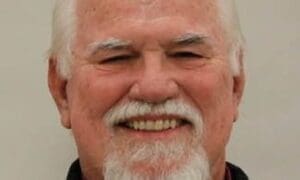Is it really “such a big deal” to insist that marriage must remain only between one man and one woman? And how should we as a society decide and then make our laws accordingly? Recently our North American Lutheran Church (NALC) joined like-minded Christians in declaring our “Affirmation of Marriage.” Admittedly, it is deep and profound, but extremely important. This is what we believe. I hope you can say the same.
“The Sacred Scriptures teach that in the beginning the blessed Trinity instituted marriage to be the life-long union of one man and one woman (Gen 2:24; Matt 19:4-6), to be held in honor by all and kept pure (Heb 13:4; 1 Thess 4:2-5). God’s Word assures us that each time one man and one woman join themselves together in the union of the marriage commitment and relationship, God himself has joined them as one. It is important to see that marriage is not only a grace-filled institution of the church, but part of the very fabric of God’s creation which extends to every time and place on earth and includes every man and woman who are joined together in this “one flesh” commitment and bond. Marriage is created by God and is not simply a social contract or convenience…
“Part of the tragedy of contemporary cultural perspectives in Europe and North America is a growing bifurcation of marriage and child-bearing. Growing numbers of men avoid or abdicate fatherly responsibility. Growing numbers of women choose to have and/or raise children apart from marriage. Just as frequently encountered is the pervasive assumption of married couples that postponing or purposefully rejecting children is compatible with the marriage bond. In these different ways, children appear to have value only to the extent they fulfill parental desires.
“While the gift of procreation is a profound and beautiful testimony of the blessedness of marriage and reveals one of marriage’s most fundamental purposes, marital goodness is not limited by procreation. Where procreation is not possible, many couples choose to adopt a child into their family and, regardless of intention, also reflect the divine love which leads God to adopt us as His own (Rom 8:15; Gal 4:5).
“So also, a childless couple exhibits, richly and beautifully, the blessings and goodness of man and woman living in complementarity. Although as an individual male and an individual female they are different, even to the point of often seeming to be alien to the other, their sexual and emotional bond enacts a life of self-giving openness to each other, protected by the bond of faithfulness…
“The beauty and significance of marriage go beyond its earthly effects — as rich and wonderful as they are. God gave marriage as a picture of the relationship between Christ and His bride, the church. In sustained and exalted language, Ephesians 5:21-33 connects godly marriage with the glorious relationship of Christ and His church. As a man and woman relate to one another with rich love and profound respect, their one flesh union hints of and is intended to signify the union of Christ and His bride, the church. But Christ and His bride also indicate the fullness of divine intention for marriage. Speaking of Christ as bridegroom and church as bride, the apostle notes that husbands are called to sacrificial love toward their wives and wives to a willing respect for their husbands…
“God’s intention for marriage is also skewed when it is spurned as unimportant for human well-being, or repudiated as a godly gift, or twisted into forms that no longer correspond to the gift God has intended. Rather, God gives marriage to humanity for its wellbeing. He commends Biblical marriage for couples to make a deep commitment to one another before God for a lifetime of giving to each other.
“In faithfulness to Christ…the church through the ages has sought to encourage godly, joyful, faithful preparation for marriage according to God’s plan and work. This is in obedience to the Scriptures, which call men and women to an appropriate discipline of desire. Our human inclination is one of self satisfaction, but God’s Word calls us to a higher purpose — serving God and others (see Rom 6:12-14; 1 John 4:20). To serve the other requires the discipline of our bodies, which obviously includes sexual desires (see Rom 13:13). Therefore both biblical and wider human traditions of most cultures have emphasized the importance of chaste relationships which reserve sexual intimacy for marriage.
“In such ways Scripture holds forth a vision of human life as male and female — one which invites us to see that as embodied creatures, our Creator intends great joy for us. Joyful, fulfilled life as men and women requires a paradox, however, for it demands the discipline of our bodies so that our desires do not rule us. This is so because the source of deepest human joy comes as our lives reflect their highest purpose in serving God and our neighbor (Matt 22:38-39).”
———–
[Kollmeyer is senior pastor of Prince of Peace Lutheran Church in Fayetteville. www.princeofpeacefayette.com.]












Leave a Comment
You must be logged in to post a comment.